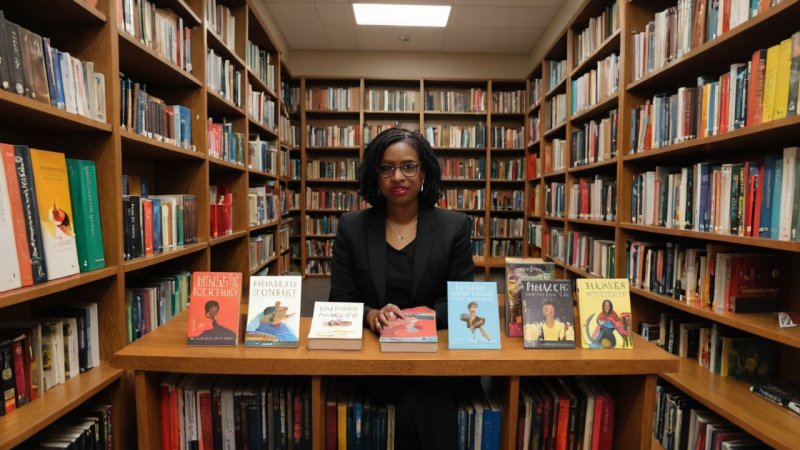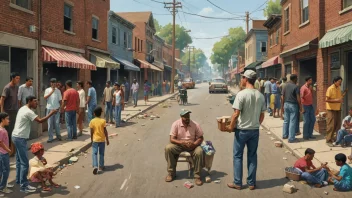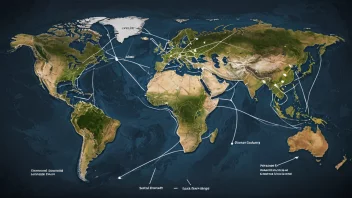Literature has always served as a mirror reflecting the diverse experiences of humanity. However, for centuries, the voices of marginalized communities have often been overlooked or silenced. In recent years, there has been a growing recognition of the importance of these voices in enriching the literary landscape. This article explores the significant contributions of marginalized writers, highlighting how their unique perspectives have shaped literature and society. By examining key themes and influential figures, we can better appreciate the vital role these voices play in our cultural narrative.
1. The Power of Diverse Narratives
Diverse narratives bring forth stories that challenge the dominant cultural paradigms. They offer insights into the lived experiences of those often excluded from mainstream literature, showcasing the complexities of identity, race, gender, and social class. For example:
- Intersectionality: Works by authors like Audre Lorde and Kimberlé Crenshaw illustrate how overlapping identities affect individuals' experiences.
- Historical Context: Books like "The Joy Luck Club" by Amy Tan explore the immigrant experience, shedding light on the cultural tensions faced by Asian Americans.
- Empathy and Understanding: Reading diverse voices fosters empathy, allowing readers to connect with experiences outside their own.
2. Breaking Stereotypes and Challenging Norms
Marginalized writers often confront and deconstruct stereotypes through their work. They challenge societal norms and provide alternative representations of their communities. Notable examples include:
- Representation in Media: Writers like Chimamanda Ngozi Adichie highlight the need for authentic representation in literature and media.
- Subverting Gender Roles: Authors such as Toni Morrison and Zadie Smith explore the complexities of femininity and masculinity, often subverting traditional gender norms.
- Reclaiming Narratives: Works by Indigenous authors like Louise Erdrich reclaim historical narratives, offering counter-stories to colonial perspectives.
3. The Rise of Independent Publishing
The rise of independent publishing has provided a platform for marginalized voices that traditional publishing houses may overlook. This shift has led to:
- Increased Accessibility: Self-publishing and independent presses allow authors to share their stories without gatekeeping.
- Diverse Genres: Marginalized writers are exploring genres like speculative fiction, poetry, and memoir, expanding the literary canon.
- Community Support: Independent publishers often foster communities that uplift diverse voices, creating networks of support and collaboration.
4. The Impact of Social Media
Social media platforms have revolutionized how marginalized voices are heard. Writers can now reach global audiences and engage in meaningful conversations. Key impacts include:
- Direct Communication: Authors can share their work directly with readers, bypassing traditional publishing routes.
- Building Communities: Online platforms create spaces for marginalized voices to connect, share experiences, and support one another.
- Activism through Literature: Social media amplifies literary activism, with authors using their platforms to advocate for social justice and change.
5. Celebrating Influential Figures
Many marginalized writers have made significant contributions to literature, inspiring future generations. Some influential figures include:
- James Baldwin: His essays and novels explored race, sexuality, and identity, leaving a profound impact on American literature.
- Zora Neale Hurston: A key figure of the Harlem Renaissance, her work celebrated African American culture and folklore.
- Sandra Cisneros: Her novel "The House on Mango Street" provides a poignant exploration of the Latina experience in America.
In conclusion, the contributions of marginalized voices in literature are invaluable in shaping our understanding of the human experience. By embracing diverse narratives, breaking stereotypes, supporting independent publishing, leveraging social media, and celebrating influential figures, we can foster a richer literary landscape that reflects the complexities of our world. As readers and consumers of literature, it is essential to seek out and uplift these voices, ensuring that all stories are heard and valued.






